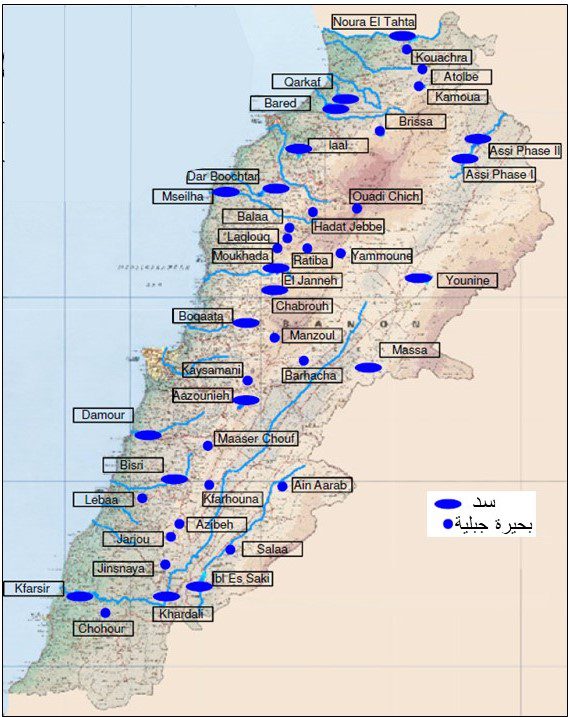Regulating Ride-Hailing Apps in Egypt: The Legal Battle for Transport in Egypt

During the last three years, private transport apps that connect drivers to passengers using GPS , most notably the American company Uber and the Emeriti company Careem, have become widely used. Current economic circumstances have strengthened the ability of these companies to create new employment opportunities, while the government’s transport services suffer grave neglect and do not cover many of the new neighborhoods and cities that have been established on the outskirts of existing cities. These factors, along with the safe and comfortable service these companies provide, have contributed to their broad social acceptance, which has led to their rapid expansion and domination over Egypt’s private transport market.
The Egyptian government has also noticeably facilitated the operation of these companies despite the absence of a legal framework regulating them. These facilitations are part of the government’s plan to incorporate the private sector into a number of public utilities and government-controlled industries. During the Egyptian president’s last visit to New York in September 2017, he met with a number of American investment companies including Uber.[1] He asked its representatives to give attention to the collective transport sector in the Egyptian market and not limit its services to individual transport.[2] This illuminates the executive branch’s perspective on these companies and its desire for them to become more prevalent and a partner of the public sector in providing services to citizens.
Yet the expansion of these companies and their remarkable market takeover has angered several segments of society, particularly the drivers and owners of regular taxis. In the absence of any conditions ensuring fair competition between them and these investment giants, some filed a case before the administrative judiciary demanding that the companies be banned.[3] They argued that the companies employ drivers with “private” driving licenses in contravention of Egypt’s Traffic Law,[4] and that these drivers evade all fees, taxes, and insurance, which has enabled them to provide the service more cheaply than their traditional competitors (regular taxis). On March 20, 2018,[5] the Court of Administrative Justice issued a ruling banning the transport of passengers using IT and private cars,[6] which means shutting down these apps in the Egyptian market. The ruling cited that no licenses have been granted to these companies and that they violate the Traffic Law, which does not allow cars to be used outside the purpose for which they are licensed.[7]
This ruling sparked controversy, dividing the Egyptian public between those who support these companies and those who oppose them. It also shed light on the “Bill to Regulate Land Passenger-Transport Services Using IT”, which the government put forward and is currently being debated in parliamentary committees.[8] In this article, we shall discuss the details of this bill and the criticisms it has received concerning its phrasing and obscure provisions. We shall also discuss the implications of the court battle and its ruling on the future of IT-based transport services in Egypt.
Wholesale Delegation: the Executive Branch as the Legislature
After the enormous expansion in the use of transport apps, legislators thought it necessary to regulate the companies operating in this field and set various work-related rules and conditions. Hence, the government prepared the aforementioned bill, which has received a number of criticisms from the various groups that it addresses.
The bill delegates the development of most rules, conditions, and procedures regulating these apps to a number of ministers, particularly the ministers of transport, interior, and communications. The legislators thereby forsake their primary role in regulating this matter, which is the main purpose behind enacting such a law. The bill grants these powers to the executive branch by charging the competent minister[9] with issuing a decision encompassing the rules and fee regulations for licensing companies to perform this service,[10] as well as the number of operating licenses and the licensing categories and fees.[11] The bill also charges the minister of interior with issuing a number of decisions that regulate the conditions, procedures, and fees for issuing operating permits[12] and the cards granted to drivers so that they may perform their work.[13] The minister of interior’s decisions also determine the shape, color, and location of the markings to be placed on vehicles working with these companies.[14]
In its comments on the bill, the Legislation Department in the State Council pointed to all these “delegations” to various ministers, stating explicitly that when the legislative branch exercises its functions in the realm of adopting laws, it cannot relinquish them to the executive branch.[15] It deemed doing so to be a clear violation of Article 101 of the Constitution, which entrusts legislative functions exclusively to Parliament.[16] If such relinquishment occurs, it could compromise the constitutionality of the law as a whole.
Besides stripping the law of its substance as mentioned above, these “delegations” also open the door for bargaining and understandings between the companies operating in this sector, on one hand, and the government as the party that controls these ministerial decrees regulating every major and minor detail, on the other. The variability of ministerial decisions could be exploited to grant these companies unwarranted rights and then retract them once their benefit has vanished. This is possible given the present absence of parliamentary oversight over government actions.
Hence, we are not facing a “law” in the strict sense of the word, as a law is supposed to consist of “general abstract rules”. Rather, we face constant negotiations between the government and these giant companies, negotiations that produce a group of regulatory rules subject to amendment at any given time in accordance with mutual interests and benefits.
What About the Inviolability of Citizens’ Private Lives?
Additionally, there has been broad debate over the constitutionality of Article 9 of the bill, which stipulates that, “The companies licensed to provide service shall electronically link their databases to the competent bodies in the manner determined by a decision made by the competent minister in coordination with the other bodies concerned”. Linking these “competent bodies” to the data recorded by the company could lead to the monitoring and tracking of users’ movements. As the bill does not outline specific circumstances in which this is permitted or require that it occur on the basis of an explained court order and for a limited period, this article violates the privacy of its users, including citizens, , and constitutional texts that must be respected.[17]
Why did the legislators not identify the “competent bodies” that will have the right to view and even perform live tracking on the movements of the various companies’ customers? This brings to mind an article The New York Times published in June 2017 that reported that Egyptian security agencies had asked Uber and Careem, which have the strongest hold on the transport market in Egypt, to hand over driver and user data.[18] According to reports circulating in Egyptian media, these agencies allegedly threatened the companies that if they did not cooperate, surrendering the data would inevitably be made mandatory. This has become clear in light of the law being drafted at the time. The representatives of these companies declared their opposition to this article during the discussion of it in Parliament.[19]
At the same time, the bill demands that the licensed companies protect the databases of customer information in accordance with the exigencies of “national security”.[20] This is entirely incomprehensible and brings us back to the questions of how “national security” is defined, when disclosing customer data constitutes protecting national security, what authority requests such data, and what rules the legislators have established to safeguard against violations related to the leak of users’ private data.
The Social Aspect and Incorporating Taxis
Given the severe harm that the enormous expansion of these apps and their grip on Egypt’s private transport market has done to drivers of regular taxis,[21] the bill endeavored to provide some guarantees to achieve a degree of fair competition between the two sides. It imposes upon all vehicles working with these companies taxes and fees that are 25% higher than those that apply to private cars.[22] It also prohibits one of the main factors that helped these apps spread, namely the use of any vehicle to perform this service without company authorization.[23]
The bill also stipulates what it calls “integration”. Within three months of becoming licensed to provide service, a company must develop its policy to integrate taxis into its system.[24] Companies that violate this policy face delicensing and a fine ranging from EGP 500,000 to 5,000,000 [US$ 28,000 to 280,000].[25] Though this provision may seem like a real attempt to assimilate taxi drivers, it is nothing more than unimplementable rhetoric as the bill includes no controls or rules to guide and regulate these integration “policies”. Does every company have the right to develop whatever mechanisms it pleases to implement this “integration”? What timeframe must the companies abide by to achieve it? Perhaps one company will need five years and another twenty years to reach the goal of this “policy”.
A New Chapter in an Unfinished Court Dispute
Amid the current debate between the bill’s proponents and opponents, it must be acknowledged that the continuing operation of the various transport apps in Egypt constitutes a flagrant attack on the authority of enforceable court rulings.[26] The government had a duty to promptly shut down these apps upon the issuance of the Court of Administrative Justice’s ruling banning them. But the exact opposite occurred: Uber filed a case before the Court of Urgent Matters to stay the execution of the Court of Administrative Justice’s ruling until a ruling is issued on the appeal that the company filed before the Supreme Administrative Court. Uber thereby followed the example set by the government, which has, during the past few years, persistently resorted to the Court of Urgent Matters to stay the execution of State Council rulings, in contravention of the Constitution (e.g. in the Tiran and Sanafir islands case).[27] In yet another flouting of constitutional texts by the urgent affairs judiciary,[28] the court ruled in the company’s favor, staying the execution of the Court of Administrative Justice’s ruling.[29]
Consequently, the lawyer representing the drivers of regular taxis filed a new case before the State Council requesting that the ruling by the Court of Urgent Matters be disregarded and the execution of the ruling banning the apps be resumed.[30] Thus began a new court struggle that does not seem likely to end anytime soon unless a new law regulating IT-based transport services is adopted. At the moment, regular taxi drivers are obviously the most aggrieved group, but if this situation continues without a law satisfying the aspirations of all groups that it addresses, these rounds of court action will continue. Perhaps next time the aggrieved will be the drivers working under the umbrella of these companies without any kind of protection or insurance. The bill currently under discussion does not even address the form of contractual relationship between these giant companies and their drivers.
This article is an edited translation from Arabic.
Keywords: Uber, Careem, Transportation Law, Privacy, Surveillance, Egypt, Cairo
[1] “al-Sisi Yatwajjah li-New York Ghadan li-Hudur Ijtima’at al-Umam al-Muttahida” (Barnamaj al-Ziyara)”, AlMasry AlYoum, September 16, 2017.
[2] “Liqa’ Ma’ Wazirat al-Istithmar wa-l-Ta’awun al-Duwaliyy D/ Sahar Nasr min New York”, Kull Yawm on ON Ent, September 18, 2017.
[3] Challenge no. 29020 of judicial year no. 71, Court of Administrative Justice.
[4] Law no. 66 of 1973 and its amendments.
[5] “al-Qada’ al-Idari Yulzim al-Hukuma bi-Waqf al-Samah li-Uber wa-Careem bi-l-‘Amal fi Misr”, Shorouk News, March 20, 2018.
[6] Article 4 of the Traffic Law defines the various types of cars: “Private car: a car intended for personal use; Taxi: a car intended for transporting passengers with a comprehensive fare for the journey”.
[7] Article 32 of the Traffic Law:
A vehicle’s operating license and the license of its driver shall be revoked if the car is used outside of the purpose indicated on its license. It may not be re-licensed, nor may its driver obtain a license, for 30 days from the date of the infraction.
[8] Bill to Regulate Land Passenger-Transport Services Using IT.
[9] The competent minister is the minister of transport.
[10] Article 2:
Without prejudice to the provisions of the Traffic Law issued via Law No. 66 of 1973, the competent minister shall, in agreement with the ministers of interior and of communications and information technology, issue a decision specifying the rules, conditions, procedures, and fee regulations for licensing companies to provide service.
[11] Article 5:
The relevant ministry shall issue operating licenses to the companies that provide service for five years renewable for similar periods after payment of licensing fees. A decision by the competent minister shall determine the number of operating licenses and the licensing fee categories in light of the number of vehicles working with the company, up to EGP 10,000,000 [US$560,000].
[12] Article 3:
The minister of interior shall issue a decision specifying the conditions, procedures, and controls for issuing operating permits. The decision shall set the fees for issuing these permits and their categories, up to a maximum of EGP 2,000 [US$110] annually.
[13] Article 6 of the bill.
[14] Article 7 of the bill.
[15] “Mulahazat Majlis al-Dawla ‘ala Mashru’ Qanun ‘al-Naql bi-Istikhdam al-Tiknulujiya’”, Ahram, March 23, 2018.
[16] Article 101 of the Constitution:
The House of Representatives is entrusted with legislative authority, and with adopting the general policy of the state, the general plan of economic and social development, and the state budget. It exercises oversight over the actions of the executive authority. All the foregoing takes place as set out by the Constitution.
[17] Article 57 of the Constitution:
Private life is inviolable, is safeguarded, and may not be infringed upon. Telegraph, postal, and electronic correspondence, telephone calls, and other forms of communication are inviolable, their confidentiality is guaranteed, and they may only be confiscated, examined, or monitored by an explained judicial order, for a limited period of time, and in cases specified by the law. The state shall protect the rights of citizens to use all forms of public means of communication, which may not be arbitrarily disrupted, stopped, or withheld from citizens, as regulated by the law.
[18] “Dilemma for Uber and Rival: Egypt’s Demand for Data on Riders”, The New York Times, June 10, 2017.
[19] “3 Mawadd Khilafiyya Tu’attil Muwafaqat al-Barlaman ‘ala ‘Tatbiqat al-Naql al-Khass’”, Mada Masr, March 29, 2018.
[20] Article 10 of the bill:
The companies licensed to provide service shall protect the databases pursuant to the instructions and controls issued via a decision from the minister concerned with communications and information technology and in accordance with the exigencies of national security. These companies shall also ensure that the databases’ servers are within the borders of the Arab Republic of Egypt.
[21] Also called “white taxis” [al-Taksi al-Abyad].
[22] Article 4 of the bill.
[23] Article 8 of the bill.
[24] Article 12 of the bill.
[25] Article 18 of the bill.
[26] See Ahmad Saleh, “Ihdar Hujjiyyat al-Ahkam al-Qada’iyya fi Misr: Ayy Mustaqbal li-Dawlat al-Qanun”, The Legal Agenda, September 15, 2017.
[27] See Mohamed Adel Soliman, “Thalathat Mashahid li-I’tida’ Sultat al-Dawla al-Misriyya ‘ala al-Dustur”, The Legal Agenda, October 14, 2016.
[28] Article 190 of the Egyptian Constitution: “The State Council is an independent judicial body that is exclusively competent to adjudicate in administrative disputes and disputes over the implementation of all its rulings”.
[29] “‘al-Umur al-Musta’jila’ Tuqif Tanfidh Hukm Ilgha’ Tarakhis ‘Uber wa-Careem’”, Shorouk News, April 7, 2018.
[30] Post on the Facebook page of Khaled el-Gmmal, the lawyer representing the taxi drivers, April 8, 2018.



